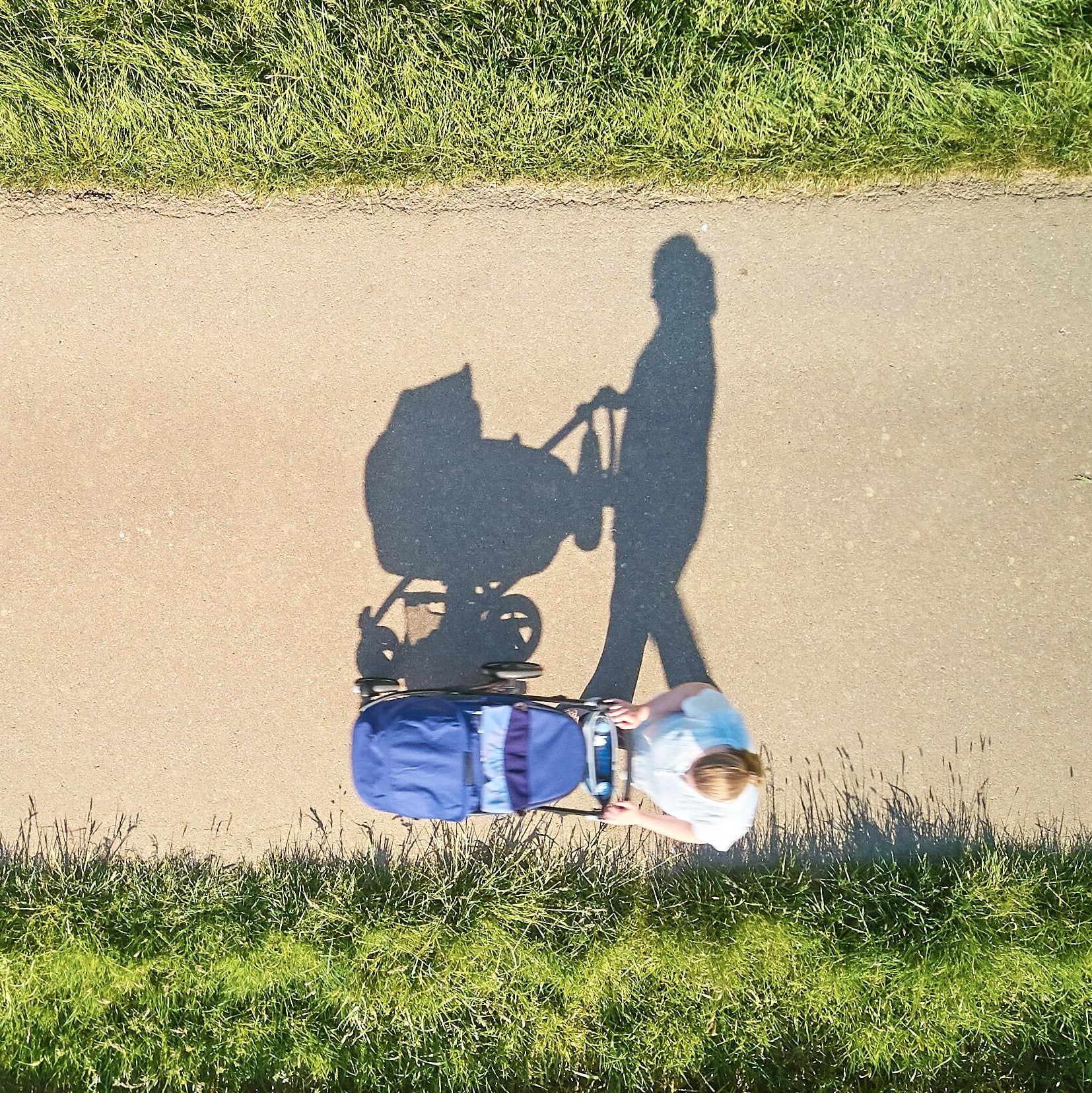Anyone considering starting a family probably doesn't think about finances first. But: it wouldn’t be such a bad idea. The costs associated with having children are often underestimated and unfortunately, they are indeed very high. Thus, sooner or later, couples have to address the financial aspects of parenthood.
Andrea Schmid-Fischer can help with this. She is a budget advisor at Frauenzentrale Luzern and works for the national umbrella organization Budgetberatung Schweiz. She says, “A family is almost like a small business that must manage its finances in a disciplined manner.” With her help, we have compiled the key points that couples should consider regarding finances when planning a family.
What should prospective parents discuss first?
Pregnancy is a trigger for many couples to address fundamental questions, says Andrea Schmid-Fischer. In particular, it involves discussing how a couple will divide childcare and work. “This involves not only financial questions but also topics like the mother’s recovery after birth, the child’s health and well-being, or the father’s needs,” says the budget advisor.
Therefore, she considers it important to first ask the prospective parents about their ideal scenario: “It is very valuable if mothers and fathers can express their needs and not be pigeonholed.” Based on this ideal scenario, Schmid-Fischer shows couples whether and how they can finance it and what alternatives they have.
As a financial expert, Schmid-Fischer has a tip for dividing work hours: “From a financial perspective, I must recommend that both parents work as much as possible in the long term, especially because of social security entitlements and retirement provision.” This does not exclude one or both parents from temporarily significantly reducing their working hours.
What direct costs do children bring?
Depending on the age of the children, different costs arise for parents. Generally, expenses include fixed costs for housing, insurance, healthcare, household expenses including diapers and baby food, clothing, and toys, as well as additional budget items for childcare, playgroups, or education for teenagers and adult children. Specific budget examples can be found here.
These costs apply to young children:
- Consumption costs, where many parents spend relatively much money on clothes and baby gear, says Schmid-Fischer. Since young children are less aware of their parents’ standard of living, she recommends checking second-hand offers.
- Expenses for private caregivers, daycare, day structures, or playgroups.
- Higher premiums for household and liability insurance as well as health insurance. For the latter, families with children can apply for premium reductions.
- Higher costs for other insurances, as many couples with children feel the need for more security, such as in the form of life insurance.
These costs apply to school-age children in addition to those for young children, although childcare costs decrease:
- Mobility costs like public transport subscriptions.
- Communication costs for the internet, phone, and streaming services.
- Healthcare costs (especially for dentists and orthodontics).
- Education costs. Families with children can, depending on their financial situation, apply for scholarships.
According to the Zurich Youth Office, the average monthly cost for a couple with one child is around 1,465 francs, not including childcare costs. For two children, it’s 1,265 francs per child. For single parents, these costs are higher because living expenses are generally higher in smaller households, making children financially more significant.
The costs vary depending on the age of the children. Primary school-aged children are the “cheapest,” provided there were previous costs for external childcare. For three days of supplementary childcare in a daycare or by a nanny per week, you quickly pay 1,500 to 2,500 francs per month. As children get older, this point falls away, but consumption and education costs increase. Schmid-Fischer encourages: “Children also bring cost savings because parents’ lifestyles automatically change. Most couples spend less money on restaurant visits or expensive outings with children.” A study by the Federal Statistical Office confirms that the costs of the first child are mostly covered by this so-called sacrifice of luxury by the parents.
What indirect costs must parents consider?
According to Schmid-Fischer, the indirect costs of children are often higher than the direct ones. These mainly refer to salary reductions for caregiving work and the associated losses in social security and retirement benefits.
A study by the Federal Statistical Office shows that these indirect costs still mainly affect mothers. Almost 20 percent of mothers give up their jobs after the first child, and three-quarters of women with children under 13 years work part-time. This means that women with children also experience long-term income losses, even if they return to full-time work. Women in couple households reduce their working hours significantly more than single mothers. Mothers in couple households earn an average of 1,000 francs less per month with one child and 1,625 francs less with two children. For single mothers, the loss in earnings is about 320 francs for one child and rises to 750 francs for two children. Fathers, on the other hand, do not significantly reduce their working hours, even if they are single fathers, and thus do not experience average income losses.
The numbers show that when you add the indirect costs to the direct costs and include the losses in retirement savings, the claim that a child costs an average of a million francs doesn't seem so far-fetched.
What are the consequences of the indirect costs of children mostly affecting mothers?
According to Andrea Schmid-Fischer, the employment gaps that predominantly affect mothers are problematic for their retirement pensions. Each year without employment or with a low part-time job leaves gaps in the first pillar and especially in the second pillar: “I see this clearly as a structural problem because our pension system is essentially tied to employment.” If one parent works part-time, the partner can compensate by contributing to their third pillar. Schmid-Fischer emphasizes that this amount can never make up for the losses in the second pillar: “It’s just a little extra or a kind of acknowledgment, but nothing more.”
In budget consultations, it also becomes clear that many parents are very challenged to balance everything. While other European countries have paid parental leave of at least 40 weeks, maternity leave in Switzerland is 14 weeks and paternity leave is two weeks. Schmid-Fischer says: “This leads to many young parents being exhausted and having health problems. It also means that the younger generation heavily relies on grandparents for childcare.” The financial expert observes that grandparents, mainly grandmothers, often retire early or reduce their working hours to support their daughters or daughters-in-law, leading to gaps in their retirement provision.
Especially when mothers reduce their hours more than fathers, Schmid-Fischer recommends also considering the form of partnership: “The primary caregiving parent – in Switzerland, usually the mothers – is least protected in a common-law partnership. Unless otherwise regulated, both partners are fundamentally equal in marriage and equally obligated. There is a transparency obligation regarding finances in marriage, which is voluntary in a common-law partnership.” Therefore, she recommends choosing life forms not based on beliefs but on a factual level to determine which advantages and disadvantages they have for the couple’s individual life.
What are the savings tips for families?
At the state level, you should consider the following points:
- Depending on the canton, there are so-called birth allowances – a one-time allowance granted upon the birth of a child.
- Child allowances: In every canton, there is a child allowance of at least 200 francs per month. All working couples or families with low taxable income (amount varies by canton) are entitled to this from the birth of the child until they turn 16.
- Education allowances: This allowance is also available in all cantons. Families are entitled to it as soon as a child begins post-compulsory education, such as university. The allowance is at least 250 francs per month and is paid until the completion of education (provided the child is not over 25 years old).
- Some employers, mainly public entities like the federal government or cantons, pay additional social allowances per child, depending on the employees’ workload.
Families can also make some deductions on taxes, depending on the canton:
- Parental tariff: deducted from the federal taxes of the couple or person primarily caring for the child.
- Child deduction: available in all cantons, with the amount varying by canton.
- External care deduction, for example, if the child is in daycare: deductible from federal taxes, with the amount varying by canton.
- Self-care deduction: only in some cantons (Zug, Lucerne, Valais).
- Education deduction: available in all cantons (amount varies).
- Insurance deduction for children: deductible from federal taxes.
- If the parents live separately, the child deduction usually goes to the parent with the higher income, provided both pay alimony. Those who pay alimony must deduct it – those who receive it must pay taxes on it.
There are also savings potentials with insurance:
- Depending on the canton and financial situation, you may be entitled to premium reductions for health insurance. You can apply for these at the relevant authority.
- Generally, it pays to check your health insurance model from time to time. There might be cheaper insurers, cheaper models, or offers for families.
- If you are a new mother with supplemental insurance, check if you get nursing allowance. The amounts can range from 100 to 250 francs per child, depending on the
For leisure activities and holidays, there are often family offers available:
- Pro Juventute offers affordable holiday programs for children between 6 and 16 years old.
- Take advantage of offers for children and families wherever possible, such as those available at ski lifts, cable cars, and museums. You can find offers on Familienpass.ch or Reka.ch.
- Use SBB offers like the Family GA (general subscription).
What are the biggest budget killers?
According to Andrea Schmid-Fischer, buying on credit is the biggest budget killer. "Leasing cars or taking out consumer loans are burdensome regardless, and when starting a family, they are definitely an added strain. In general, saving and then paying is almost always cheaper than repaying."
The budget advisor also advises against insurance products that come with high fixed costs and little flexibility: "This is especially true for risk-saving products. I recommend always separating savings products from insurance." Overall, the budget advisor recommends keeping fixed costs as low as possible, as this allows for more flexibility. Therefore, it is also worthwhile to reduce mobility costs, perhaps by foregoing a car.
Where can families apply for financial help if money is tight?
Families living permanently at the subsistence level are entitled to social assistance. But what if the budget temporarily gets out of balance? Schmid-Fischer points out the benefits of budget counseling. A budget can often help identify habits and savings potential: "Most of us could easily go six months without buying clothes. Recognizing such savings potential helps to act quickly in emergencies and reduce these expenses." She emphasizes that she does not refer to working-poor families, who cannot earn a subsistence income even with full-time jobs.
Preventive budget counseling can also be very helpful, she emphasizes. Because "a solid budget takes into account reserves for tough times. Saving three to six months' worth of salaries during good times helps to gain time and make adjustments in unforeseen emergencies."






